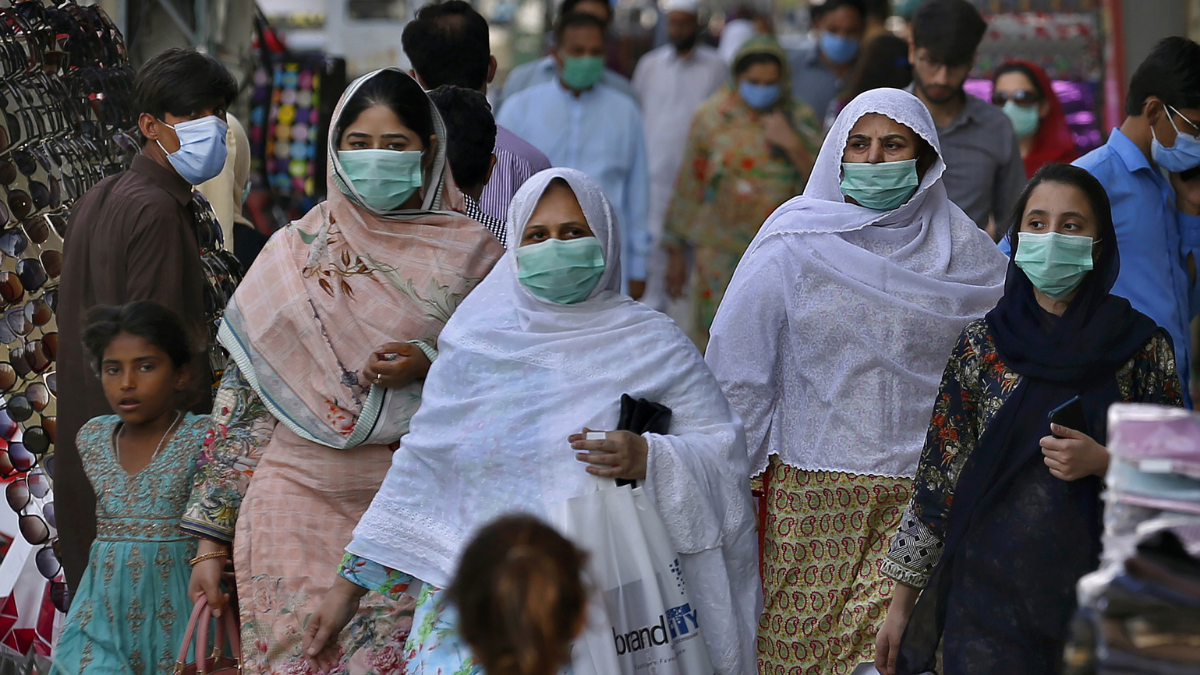
On Tuesday, Pakistan announced 79 confirmed cases of the new Omicron variant of COVID-19.
According to media reports, nearly 85 per cent of the confirmed cases were of local transmission.
It merits mentioning that the most transmissible new variant of COVID-19 has shown its presence in over 100 countries.
Meanwhile, health officials have warned that Pakistan may see the fifth wave of COVID-19 in February 2022, with daily cases of around 3,000-4,000 patients per day. The announcement comes as community transmission of the Omicron variant has begun in major cities of Pakistan — Karachi, Lahore, and Islamabad.
Experts have predicted a rise in COVID-19 cases all over Pakistan in the next two weeks, warning people to adhere to restrictive measures and SOPs.
The first case of Omicron was reported in Karachi on December 13. As of December 28, about 79 Omicron cases had been confirmed, including 33 in Karachi, 13 in Lahore, and 17 in Islamabad. About 12 cases were associated with international travellers out of the total tally. According to various reports, the authorities have isolated the affected people. They have initiated contact tracing to control the spread of the variant.
Various doctors have suggested that the government should tighten restrictions and limit the number of people at indoor events to curb the spread of Omicron.
Read Also | All about the eighth continent – Zealandia
On November 26, the World Health Organisation (WHO) had designated Omicron as a variant of concern.
The National Institute of Health (NIH) has asked the National Command and Operation Centre (NCOC), Ministry of National Health Services and other provincial health departments to remain vigilant to detect the new variant in Pakistan.
“SOPs and vaccination continue to be our defence against COVID-19 despite the cases being reported. All government-approved vaccines available are highly effective at combating severe disease and hospitalisation. The government asks everyone to get both doses of COVID-19 as well as the booster dose as per the process and the eligibility criteria,” said NIH.



